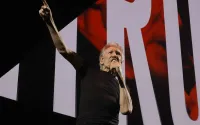12 November 2004Saeed Shah
Individual American states are putting together a system to cap and trade greenhouse gas emissions, despite the Bush administration's opposition to the Kyoto protocol on global warming. Such a measure was backed by John Kerry during the recent election campaign.
The regional-level initiative, led by the Republican governor of New York, George Pataki, aims to be able to announce the details of a scheme by April next year. Nine north-eastern and mid-Atlantic states are taking part, with several other states and some Canadian provinces involved as "observers" in the process.
The scheme could even link up with the emissions controls and trading system being established by the EU next year, allowing emission allowances to be traded across the Atlantic. It is understood that informal talks have already taken place between environmental officials of the US states and their European Commission counterparts.
The development will prove a major embarrassment to the Bush government, which provoked an international outcry in 2001 by pulling out of the 1997 Kyoto climate control treaty. Many believe that the Bush administration had hoped to kill off Kyoto by opposing it. However the recent decision by Russia to sign up has meant that the treaty has been saved.
Some insiders even believe that unilateral action by US states will eventually force Bush to join Kyoto, by showing that it can work in the US.
Mr Bush has allowed companies to get away with a lowering of emissions standards at the same time as America remains responsible for 25 per cent of the world's greenhouse gases.
Peter Vaborowsky, a managing director at Evolution Markets, a brokerage that specialises in the environmental markets, said: "There's no question that this turns up pressure on the federal government - in the past when individual states have taken action on other pollutants, the federal government has then taken action."
The nine states in the project, which is known as the Regional Greenhouse Gas Initiative (RGGI), are Connecticut, Delaware, Maine, Massachusetts, New Hampshire, New Jersey, New York, Rhode Island and Vermont. In addition, Maryland, the District of Columbia and Pennsylvania are "observers" in the process, as are some eastern Canadian provinces.
Environmental officials from the states will meet in New York today to try to thrash out some of the remaining technical issues yet to be resolved. It is hoped that the cap and trade scheme can be operational by 2007 or 2008.
Like the European Union, the US states are taking a market-based approach to curbing emissions of carbon dioxide, the greenhouse gas blamed most for global warming.
Industries covered by the schemes will be given allocations of allowed emissions, in units of one ton of carbon dioxide produced. Polluters can either take a step to reduce their emissions or buy the allocations on a market from others which have done this.
It is thought that as the US is outside Kyoto, Europeans will be able to sell US industries their allocations but the US allocations are unlikely to be recognised as a Kyoto-currency and so cannot be bought by the Europeans.
In the US, sulphur dioxide and nitrogen oxide emissions, which cause acid rain and smog, are federally regulated and traded. However, there is no federal regulation of carbon dioxide emissions.
http://news.independent.co.uk/low_res/story.jsp?story=582065&host=3&dir=70






